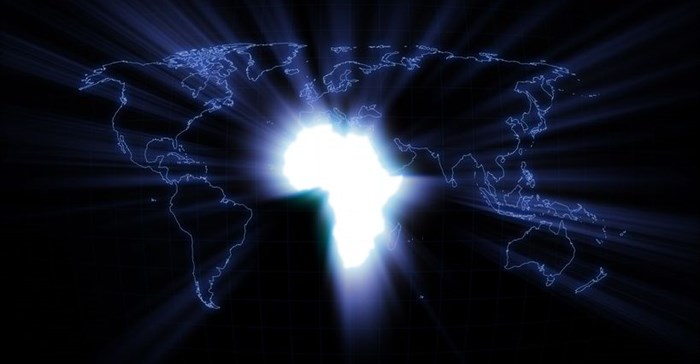
Top stories

ICTToo little, too concentrated: why AI startup funding in Africa needs rethinking
Claire Zanuso 6 hours





More news



ESG & Sustainability
Redisa calls on govt to fix South Africa’s “broken” waste management system

























With 80 ADB shareholders - 54 African states and 26 non-African countries - set to vote on Thursday, 28 May, it is difficult to predict who will succeed Rwandan Donald Kaberuka, bank chief for two consecutive terms since 2005.
The new super banker will take over an ADB seeking to diversify beyond its traditional role as a development bank, which lends money for major projects - a total of $6.8bn for 317 operations in 2013.
Today despite multiple conflicts, health crises such as Ebola, and staggering poverty, Africa is seen as "a new frontier in world economic growth", Amethis investment fund founder Luc Rigouzzo told AFP.
He noted that the continent's gross domestic product has doubled since the year 2000 to $2tn (1.8-trillion euros). In an OECD-led report released on Monday, 25 May, economists predicted the overall African economy would expand by 4.5% this year.
In this new frontier, shareholders in the Abidjan-based bank might for the first time pick a woman, Cristina Duarte, Cape Verde's finance minister, who would also be the first Portuguese speaker to run the bank.
Other contenders include Akinwumi Adesina from Nigeria, which rivals South Africa as an investors' favourite despite fighting a six-year insurgency by Boko Haram Islamists in the country's north.
However, a win by Adesina, Nigeria's outgoing agriculture minister, would break an unwritten rule that regional heavyweight countries should not run the ADB.
The candidates from Francophone African countries are Mali's Birama Sidibe, an expert in development, Tunisia's ex-finance chief Jalloul Ayed and Bedoumra Kordje, current finance minister in Chad, who if chosen would become the ADB's first president from central Africa.
Ethiopian finance minister Sufian Ahmed, Sierra Leone's foreign minister Samura Kamara and former ADB vice president Thomas Sakala of Zimbabwe round out the list.
Foreign investors will likely play the role of kingmaker in choosing the next ADB chief.
The United States - the ADB's second-biggest shareholder after Nigeria - will have a central role in the vote, as will Japan and China.
France wants a bank president who is "more concerned about the interests" of Francophone Africa, the finance ministry says.
But analysts say Western powers need to take a new view of Africa.
"The West has held on to a vision that was true 30 years ago, of an empty, rural continent with a colonial trading post economy, heavily dependent on raw materials and the trickling-in of foreign aid," said Rigouzzo, a former chief of France's development agency.
Africa "is still seen as waiting for handouts, but we are no longer in that situation," he said. "Public development aid now accounts for less than 2.5 percent of the continent's GDP."
Private capital is flowing, with major US-based investment and equity firms Carlyle and KKR setting up shop in Africa, while several countries now finance themselves fully on the market.
And without losing sight of the need to fight poverty and develop infrastructure, the new ADB chief must plan to manage the continent's financial attractiveness.
Nigeria's Adesina told AFP in late March that he wanted to "finish off the white elephants", in a reference to useless luxury projects that are often financed using international aid and built by foreign businessmen, and which reek of corruption.
He called for "intelligent infrastructure that is more productive, more competitive".
He also urged more cooperation across borders, pitching ideas such as an "African Google", a transnational electricity market, and a regional stock exchange.
Mali's Sidibe told AFP he wants to "pull the bank out of its comfort zone". The ADB should act as a "financial catalyst", not just as a lender.
Cape Verde's Duarte shares a similar vision. If chosen, she wants to turn the ADB into an "innovative, creative bank that responds to the specific needs of African countries and their private sectors".
The winning candidate needs to secure a majority of votes from both bank members and African states.
Source: AFP

For more than two decades, I-Net Bridge has been one of South Africa’s preferred electronic providers of innovative solutions, data of the highest calibre, reliable platforms and excellent supporting systems. Our products include workstations, web applications and data feeds packaged with in-depth news and powerful analytical tools empowering clients to make meaningful decisions.
We pride ourselves on our wide variety of in-house skills, encompassing multiple platforms and applications. These skills enable us to not only function as a first class facility, but also design, implement and support all our client needs at a level that confirms I-Net Bridge a leader in its field.
Go to: http://www.inet.co.za